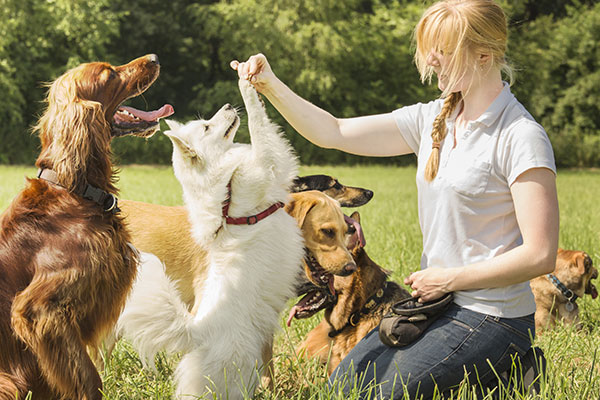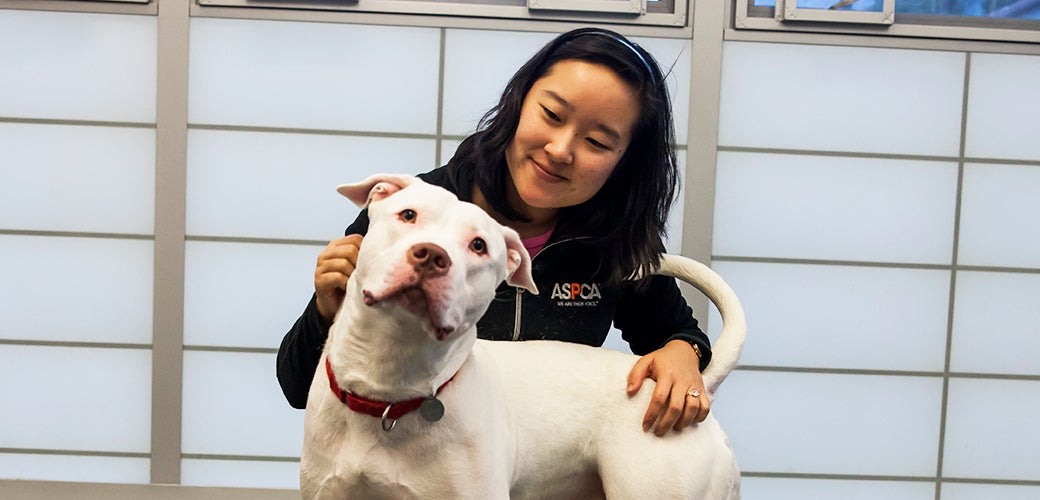Why veterinary behaviour matters more than standard commands
Wiki Article
Understanding the Role of a Vet Behaviourist in Animal Training and Well-being
The function of a vet behaviourist is important in addressing the intricate connection in between pet dogs and their proprietors. They combine vet medicine with insights from pet behavior science to deal with problems like aggressiveness and anxiety. Unlike standard fitness instructors, their approach concentrates on the underlying reasons for these actions. This nuanced viewpoint raises concerns regarding the performance of conventional training methods and exactly how a deeper understanding can transform pet health. What methods do they employ to achieve these results?What Is a Veterinary Behaviourist?
A vet behaviourist is a specialized specialist who concentrates on understanding and attending to the behavior concerns of pets, particularly pets. Their proficiency integrates vet medication and pet actions science, enabling them to detect and treat a vast array of behavioral troubles - canine behaviourist near me. These specialists often hold postgraduate degrees, such as a Master's or PhD in pet behavior, and are certified by appropriate companies, guaranteeing they have a deep understanding of pet psychologyVeterinary behaviourists assess animals via in-depth observation and analysis, considering elements such as genetics, atmosphere, and training background. They create customized therapy strategies, which might include desensitization methods, positive reinforcement approaches, and ecological adjustments. Collaboration with pet dog proprietors is necessary, as they offer guidance and assistance throughout the training process. Ultimately, the objective of a vet behaviourist is to boost the well-being of the animal while promoting an unified connection between pet dogs and their proprietors.
The Importance of Understanding Pet Actions
Understanding pet actions is crucial for both pet dog owners and professionals in the area of pet treatment, as it lays the foundation for efficient interaction and training. Acknowledging just how animals perceive their atmosphere and react to stimuli makes it possible for caretakers to create an extra unified living circumstance. Understanding into behavioral cues, such as body movement and vocalizations, promotes stronger bonds in between family pets and their proprietors. By valuing the natural reactions and demands of various varieties, individuals can tailor their training approaches to suit these variables, promoting better understanding and collaboration. Additionally, a strong grasp of behavior scientific research help in recognizing stressors and possible triggers, enabling positive treatments. Generally, understanding animal habits not only improves the well-being of family pets yet also enhances the experiences of those who look after them, ultimately resulting in much healthier, better relationships.Typical Behavioral Issues Attended To by Vet Behaviourists
Vet behaviourists frequently address typical behavioral issues in family pets, consisting of hostility and fear responses. They also concentrate on anxiety and stress management, which can greatly affect an animal's wellness. Comprehending these issues is essential for developing efficient training and intervention techniques.Aggression and Worry Feedbacks
While lots of pet proprietors may check out hostility and worry actions as simple behavior issues, these complex reactions typically originate from underlying stress and anxiety or past injury. Veterinary behaviourists play an essential function in determining the origin of these habits, which can materialize in numerous kinds, consisting of growling, biting, or extreme anxiety of specific circumstances. Recognizing these triggers is essential for establishing efficient training techniques tailored to every family pet's one-of-a-kind circumstances. Behaviourists employ methods such as desensitization and counter-conditioning to help pets handle their worries and aggressiveness. Additionally, they enlighten animal owners concerning suitable administration methods, emphasizing the relevance of persistence and consistency. Attending to hostility and concern reactions not just boosts the family pet's lifestyle however also strengthens the bond in between pet and owner.Anxiousness and Stress Administration
Anxiousness and tension are common problems that lots of animals encounter, frequently arising from modifications in their atmosphere, lack of socialization, or previous negative experiences. Veterinary behaviourists play an essential function in determining the underlying reasons of these concerns. They use numerous techniques, including behavioral modification, desensitization, and counter-conditioning, to help pets take care of stress and anxiety. On top of that, they might advise ecological modifications, such as developing safe areas or supplying enrichment tasks that advertise leisure. Collaboration with pet proprietors is vital, as behaviourists guide them in comprehending their pet's signals and executing effective coping strategies. By dealing with anxiety and anxiety, veterinary behaviourists add greatly to improving the overall well-being and quality of life for animals and their families.How Veterinary Behaviourists Differ From Traditional Fitness Instructors
Vet behaviourists differ from typical trainers primarily in their educational histories and training. While typical trainers usually concentrate on obedience and basic commands, veterinary behaviourists emphasize understanding and resolving underlying behavioral concerns, including clinical considerations into their strategy. This distinct emphasis allows them to offer a more extensive therapy for animals with complex behavior difficulties.Education and Training Distinctions
Comprehending the distinction between vet behaviourists and conventional instructors is essential for pet dog proprietors seeking efficient training services. Vet behaviourists possess postgraduate degrees in veterinary medication, commonly followed by specialized training in animal behavior. This education and learning outfits them to deal with complex behavioural issues that might originate from clinical conditions or psychological aspects. In contrast, conventional instructors usually have certifications from training programs that concentrate on obedience and standard commands without diving right into the underlying emotional or clinical elements. While both professionals intend to improve animal behavior, veterinary behaviourists can detect and deal with behavioural problems holistically, incorporating clinical understanding right into training methods. This crucial distinction highlights the relevance of selecting the right expert based upon the pet dog's particular demands.Emphasis on Behavioral Issues
Addressing behavioral concerns requires a nuanced approach that differentiates veterinary behaviourists from conventional fitness instructors. While conventional trainers commonly concentrate on obedience and fundamental commands, vet behaviourists check out deeper right into the underlying reasons for problematic practices. They utilize an extensive understanding of pet psychology and actions alteration methods, which are rooted in scientific research study. This knowledge enables them to identify concerns coming from anxiousness, concern, or aggressiveness, rather than just resolving surface-level symptoms. On top of that, vet behaviourists analyze the pet dog's overall well-being, thinking about ecological variables and the pet's history. By integrating medical knowledge with behavioral methods, they offer tailored options that advertise lasting behavioral adjustment, ensuring both the pet dog's and owner's high quality of life are significantly boosted.Clinical Considerations Included
While traditional instructors might neglect hidden medical concerns, veterinary behaviourists prioritize an extensive evaluation of an animal's health and wellness as a fundamental action in addressing behavioural problems. This strategy permits them to identify prospective clinical conditions that may add to unwanted behaviours, such as anxiety, pain, or neurological conditions. By integrating clinical analyses right into their practice, veterinary behaviourists can work together with vets to ensure an all natural understanding of the family pet's health. Furthermore, they can suggest appropriate therapies or adjustments to training strategies based upon medical searchings for. This substantial viewpoint differentiates veterinary behaviourists from standard instructors, as they attend to both behavioural and health-related factors, ultimately resulting in more effective and lasting results for animals and their proprietors.
The Process of Collaborating With a Vet Behaviourist
Collaborating with a vet behaviourist involves a systematic method to dealing with a family pet's behavior concerns. Initially, the process starts with an extensive analysis, where the behaviourist collects thorough information about the pet dog's background, environment, and details actions that are bothersome. This normally includes questionnaires, interviews with the family pet proprietor, and occasionally observations of the animal in its atmosphere.Complying with the analysis, the veterinary behaviourist creates a customized intervention plan that may include behavior modification strategies, training methods, and, if needed, referrals for medical assessments. canine behaviourist near me. The strategy is made to be functional and attainable, making certain that it fits perfectly right into the family pet proprietor's lifestyle
Succeeding follow-up sessions are necessary to monitor progression, readjust approaches, and offer support. This joint effort not just intends to customize undesirable habits yet likewise to improve the overall health of the animal, making sure an unified connection in between the pet and its owner.
Enhancing Your Pet dog's High quality of Life With Behavioral Support
Enhancing a pet's lifestyle with behavior assistance is essential for cultivating a healthy and fulfilling relationship between family pets and their proprietors (board certified veterinary behaviourist). Vet behaviourists play an important role in identifying and resolving behavior issues that may hinder a family pet's health. Via veterinary behaviour customized methods, they help relieve anxiousness, worry, and aggressiveness, eventually advertising a more balanced and satisfied pet dogBehavior assistance includes different methods, including positive support, environmental enrichment, and socialization. By executing these approaches, proprietors can create a caring environment that encourages favorable actions. This not only boosts the family pet's emotional health and wellness however also enhances the bond between pet dog and proprietor.
Additionally, regular examinations with a vet behaviourist assurance that any arising behavior concerns are quickly addressed, stopping rise. In general, purchasing behavioral support is a proactive method that substantially enriches a pet dog's life, bring about boosted physical and psychological health end results.
Regularly Asked Questions
What Qualifications Do Veterinary Behaviourists Have?
Vet behaviourists usually hold a veterinary degree, adhered to by specialized training in pet actions. Lots of also have qualifications from recognized organizations, showing their knowledge in dealing with animal behavior issues and promoting general pet health.Can Vet Behaviourists Suggest Medication for Pets?


Vet behaviourists, having vet degrees and specialized training, can undoubtedly suggest medication for animals. This capability permits them to attend to underlying behavioral concerns efficiently, often integrating pharmacological therapy with behavioral alteration methods for best results.
For How Long Does Behavior Modification Normally Take?
Behavioral therapy period varies substantially, commonly varying from a few weeks to a number of months. Factors influencing this timeline consist of the pet's particular concerns, consistency of training, and the owner's interaction in the process.Are Remote Consultations Available With Veterinary Behaviourists?

Exactly how Much Does a Vet Behaviourist Assessment Price?
The expense of a vet behaviourist examination typically ranges from $100 to $300, relying on aspects such as location, experience, and session length. Added charges may make an application for follow-up examinations or specialized services.Report this wiki page